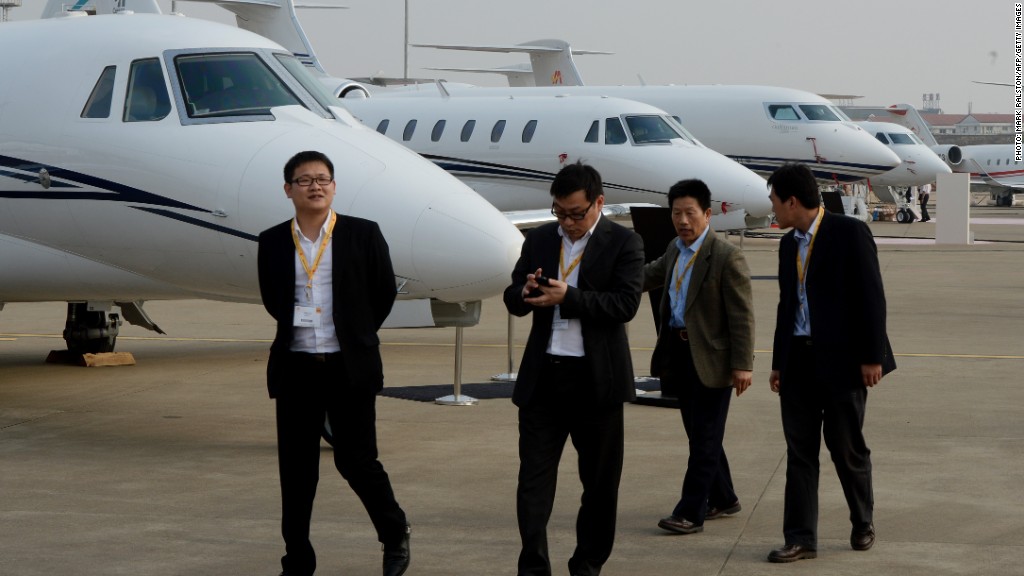
China is the world's hottest market for business travelers, and spending in the country could surpass the U.S. as soon as 2015, according to a new report.
Business travel spending in China hit $225 billion last year -- or 23% of the $1.1 trillion global total. That's second only to the U.S., where spending reached $274 billion, a report from the Global Business Travel Association said.
The pace of business travel growth in China is remarkable. Since 2000, spending has expanded by about 16% each year on average, compared to 1% in the U.S.
"Despite stronger growth, the U.S. continues to lose with China, which is poised to take over as the #1 business travel market in the world by 2016," the report said.
For decades, the Chinese economy experienced double-digit growth -- an expansion that has been reflected in the country's business travel industry.

As Beijing built the world's second-largest economy, it also developed extensive transportation infrastructure. China now boasts top-flight transportation options, including a high-speed rail network, that make it easier for both leisure and business travelers to get around.
Yet there are some signs that the blockbuster industry growth might start to slow. China's economy has entered a period of more moderate growth, and business travel spending will likely also take a hit.
The GBTA also expects spending restrictions that are part of government's anti-corruption campaign to weigh on the industry. The group predicts 13% annual growth over the next five years.
Related: Chinese tourists boost U.S. businesses
"Despite slowing growth, China remains in a league of its own in terms of market potential," the GBTA's report said.
One big reason for all that potential: Per capita business travel spending in China still under $200 -- far less than $800 U.S. average.
